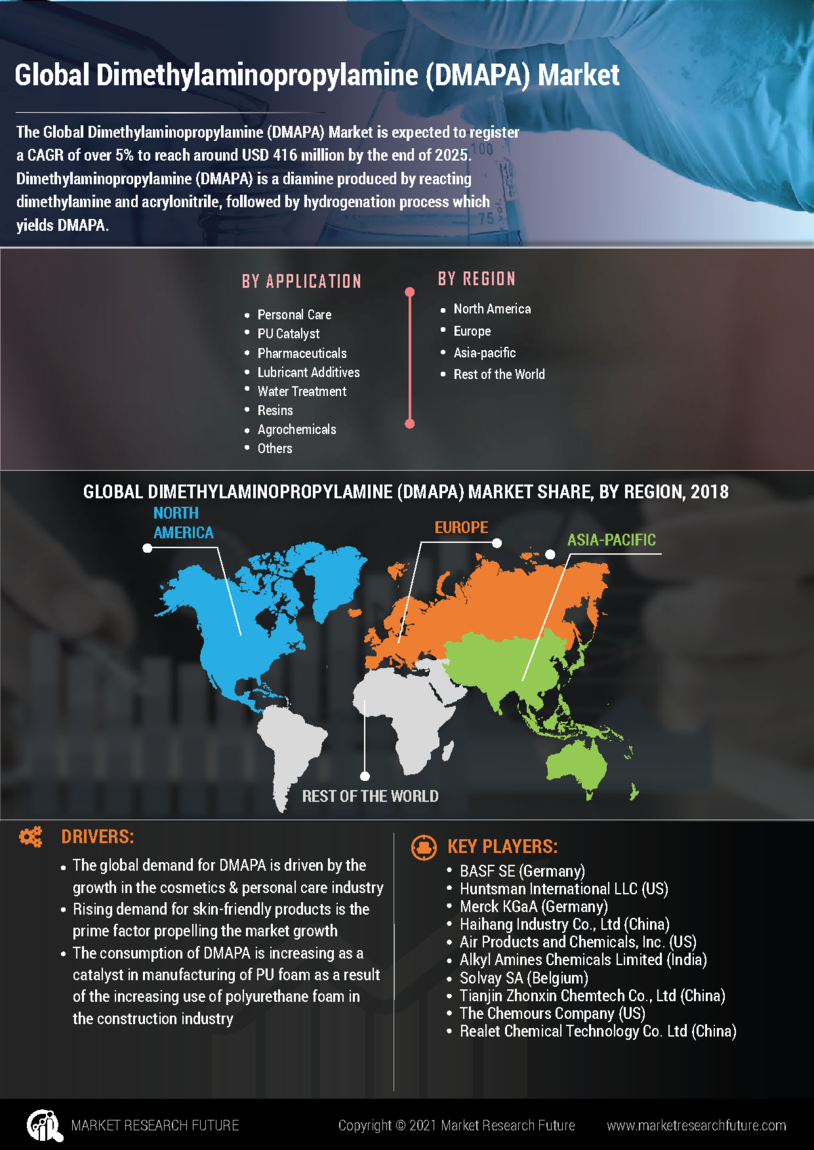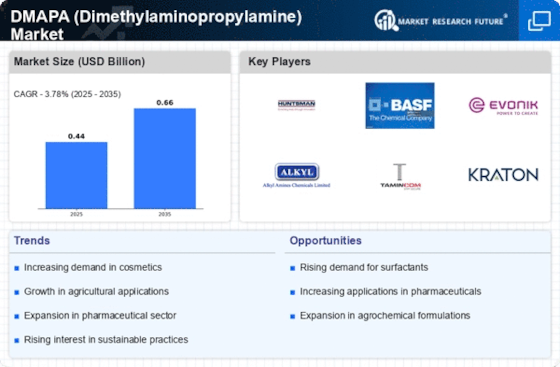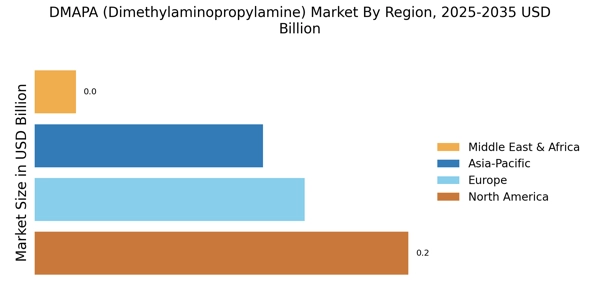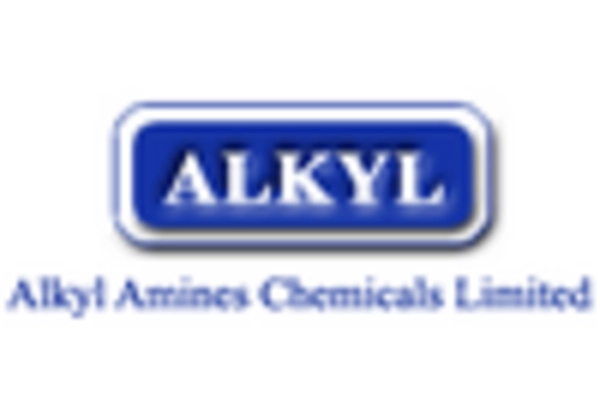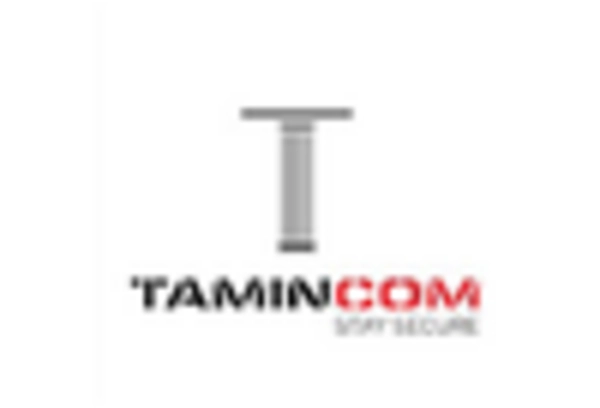DMAPA Dimethylaminopropylamine Market Summary
As per Market Research Future analysis, the DMAPA (Dimethylaminopropylamine) Market Size was estimated at 0.44 USD Billion in 2024. The DMAPA industry is projected to grow from USD 0.4566 Billion in 2025 to USD 0.6619 Billion by 2035, exhibiting a compound annual growth rate (CAGR) of 3.78% during the forecast period 2025 - 2035
Key Market Trends & Highlights
The DMAPA market is poised for growth driven by diverse applications and sustainability initiatives.
- The North American DMAPA market remains the largest, reflecting robust demand across various sectors.
- Asia-Pacific is emerging as the fastest-growing region, fueled by increasing industrial applications.
- The personal care segment dominates the market, while the pharmaceutical segment is experiencing rapid expansion.
- Key market drivers include rising demand in personal care products and advancements in chemical manufacturing.
Market Size & Forecast
| 2024 Market Size | 0.44 (USD Billion) |
| 2035 Market Size | 0.6619 (USD Billion) |
| CAGR (2025 - 2035) | 3.78% |
Major Players
Huntsman Corporation (US), BASF SE (DE), Evonik Industries AG (DE), Alkyl Amines Chemicals Ltd (IN), Taminco (BE), Kraton Corporation (US), Shandong Jinling Chemical (CN), Zhejiang Jianye Chemical (CN)
